- About Us
- Columns
- Letters
- Cartoons
- The Udder Limits
- Archives
- Ezy Reading Archive
- 2024 Cud Archives
- 2023 Cud Archives
- 2022 Cud Archives
- 2021 Cud Archives
- 2020 Cud Archives
- 2015-2019
- 2010-2014
- 2004-2009
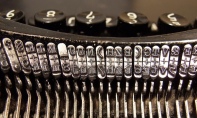 |
Cud Flashes In The Pan |
This month’s theme: All Things Lit
For The Cud’s annual All Things Lit edition, I give you a short story I wrote ten years ago. This was originally accepted to appear in an anthology called Anthrolations in 2008, but the title languished for a while and then the publisher decided to close the title and release the stories. I’d had it on my writing Web site as a published credit and never thought to remove it; now, eight years later, I realized that I had to remove it or run it somewhere. And what’s why you’re reading it today. Enjoy... or not.
“Trials and Tribulations of a First-Time God”
Science fiction
by David M. Fitzpatrick
PROLOGUE
“That wraps up my questions,” Detective Simms said across the table to her. “Unless there’s anything else you can tell us.”
She returned his steely gaze with mournful eyes. “What else could there be?”
“Maybe nothing. We’ve reviewed all his detailed scientific notes,” Simms said, gesturing to the haphazard pile of record wafers, strewn about like an interrupted card game. “We understand how he did it. We just don’t know why.”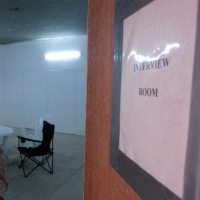
She sighed and settled back in her chair, licking her lips. The overhead light shined off her golden hair in the concrete interrogation room. “Then since I’ve answered all of your questions, am I free to go?”
He smiled. “I’m sure you realize it’s not that easy, Sheila.”
“That’s Miss Prescott, if you please,” she said icily, grimacing and slumping in the chair. “You can’t keep me here forever.”
“The law says I can.”
They traded hard stares for several moments before she relented. Sadness ringed her eyes, and her face sank. “All right, then. You’ve reviewed highlights from all his recordings except one. It’s time you listened to it.”
“His personal journal,” Simms mused, picking up one of the wafers. “My people will listen to that one soon enough.”
“Oh, I think YOU should listen to it,” Sheila said, perking up. “You may understand Charlie more from that than anything else.”
“From a few minutes of his personal thoughts in audio only, compared to nearly five hundred hours of video?”
“You wanted to know the WHY,” Sheila said, looking down her nose at him with serious eyes. “You need to know what made him go from scientist to… to the thing he is now. You need to know of his motivations and passions.”
Simms looked at her dubiously. “And this brief audio recording will somehow clue me in?”
She gave him a broad, white-toothed smile. “Oh, most definitely.”
He thought about it, and something in her eyes told him she meant it—and looking into her eyes was somehow unnerving.
“All right,” he said. “I’ll listen to it personally, this evening. In the meantime, you’re going to have to spend the night in—”
“Why not now?” she interrupted him with pleading eyes. “It’s not that long.”
He raised his brow and allowed a slight grin to turn up the corner of his mouth. “You’re some piece of work, Sheila—sorry, Miss Prescott.”
“It’s just that I’d… like to…” She trailed off, looking embarrassed.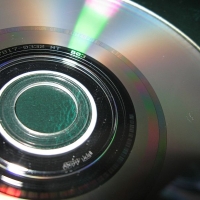
“You want to listen to it, too?”
She hung her head, looking at him almost in shame. “You can understand why I’d like to hear it.”
“I suppose so. All right, then.”
The wafer’s display screen said PERSONAL JOURNAL. Simms leaned over and dropped it into the up-angled slot in the table terminal. Almost immediately, a disembodied voice emanated from hidden speakers.
“This is the personal journal of Dr. Charles E. Prescott,” said Prescott’s own voice. A synthesized voice then chimed in with, “Say ‘Play’ to continue.”
Simms looked up at Sheila’s nervous face. “You sure?”
She nodded. “I’m ready.”
“Play,” he said, and the computer continued.
* * *
January 29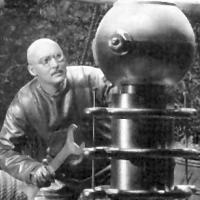
No matter how much we love each other, my wife is my greatest nemesis. What a bitter irony—yet how appropriate to open this recording with that very point.
I’ve been working diligently on my latest experiment, and I think I have it. All I need is more time. I’ve been so wrapped up in it, and so robotic about recording every scientific step along the way, that I’ve neglected the human factor. I think it’s important to occasionally divorce myself from the science and try to communicate my personal thoughts. But although when I chronicle an experiment, I never leave out a single hypothesis, test, result, conclusion, or single step along the way, I’m useless when it comes to personal tasks like recording a letter or dictating my grocery list. But I’ll try.
* * *
February 2
The groundhog saw his shadow today—you know, Punxsutawney Phil, the one they haul out of the ground every year. I look at this silly tradition as prophetic: What is now ridiculous will have new meaning the next time Groundhog Day rolls around. By then, I’ll have Phil intelligent enough to say, “My shadow has nothing to do with the remaining length of winter; it has to do with whether or not it’s sunny out, you morons.”
An amusing notion. I wish I could share it with my wife, but I don’t yet dare. She’s oblivious to, and innocent of, my crimes, loving me unconditionally. If she discovers what I’ve been doing, I fear she will rethink that love—considering her religious stance. She’ll just think I’m playing at being a god, and she won’t like it.
In the meantime, until recently, we’d been very close. She’d tried to entice me sexually every night, but I’m usually too exhausted. She doesn’t understand, and has begun questioning why my work is more important than making love with her.
I tell her it isn’t, but maybe I’m lying. I’m now far more involved in my experiments than I am with her. How selfish of me to ignore my wife’s needs in favor of my work. I am ashamed—but my work is important. When I succeed, she’ll understand.
* * *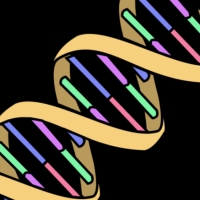
February 10
Some god indeed. It’s been a week since my last entry; it’s just that my work has required so much of my time. I warned you I wasn’t good at this.
I’m close now. It’s only a matter of time before I’m able to test the first animal trials. After four years of slow progress and many setbacks, the past year has been nothing but surges ahead. More to come soon.
* * *
February 17
Well, I’ve done it. I had to tell someone, and I can’t discuss it with any of my colleagues; they’re too afraid of the legal repercussions. My wife was totally aghast, but that was to be expected. She means well, but her respect for science is greatly eclipsed by her passion for God.
“Only God may give life,” she lectures, as if I were creating living beings out of some lab-stewed primordial soup. I’ve tried to explain that it isn’t about creating life. Ever since Miller and Urey electrified their own laboratory soup in 1953 and made organic compounds and amino acids, plenty of others have gone down the road of creating life. From amino acids to protocells and beyond, living cells were finally created from scratch in the laboratory. God was thus unseated as life’s sole creator—and almost as quickly, laws were passed to stop anyone else from trying.
“I’m not creating life,” I argue to my wife. “I’m just making existing life sentient.”
But she doesn’t see the difference between building a new life form from scratch and imbuing existing life with intelligence and consciousness. She believes those things are all aspects of life. It’s hard to argue with anyone that entrenched in her faith, but I’m not playing God. I’m a scientist and an atheist; from my perspective, there’s no God for me to play.
Tomorrow, I begin the final phase. It might be awhile before I update this journal.
* * *
June 20
The past four months have been a flurry of successes, as detailed in my scientific records. I’ve been on such a roll, I’ve utterly neglected this personal record.
I’ve succeeded, mostly. I achieved sentience and higher intelligence, but there are challenges, as indicated in my experiment records. Meanwhile, my wife is inconsolable on the subject. I haven’t even told her of my successes yet. I don’t dare.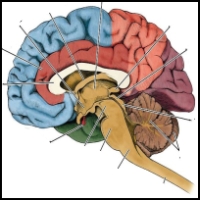
“You can’t keep playing God!” she screamed the other day. Then she burst into tears and wailed like a child. I tried arguing the point, delicately and carefully, but it only made her more upset. If her love for me weren’t so strong, she’d probably report me to the authorities—and then the experiment would be over. I’m taking a huge risk on her love. It’s strong, but can it transcend her faith?
For the first time in a while, my wife wanted to make love that very night, after our argument. I was exhausted and depressed, but maybe I should have accommodated her. Perhaps tending to her physical needs will help quell any desire to turn against me.
But I work eighteen hours a day, and I’m so tired at night.
Responsibilities, ambitions, choices.
* * *
June 23
Despite everything I’ve tried, Sheila won’t leave me alone. She expresses her love for me every day and wants to be at my side all the time. I’m concerned about her feelings. I’ve been concerned about everyone else’s feelings far too much.
But despite everyone else, my wife’s feelings are of primary importance. Not only is she the most important person in my world, but she can make or break me. If she goes over the edge, there’s no stopping her, and before I know it the investigators will be on my doorstep.
* * *
July 18
My wife came into my laboratory today. It was bizarre; she never comes into my lab. She uses the intercom in the house to tell me when dinner is ready or to ask me if I want tea or just to let me know that she loves me. But today, the door squeaked open and I looked up in surprise… and there she was.
“Honey,” I said. “Good to see you.”
“I haven’t seen your lab in years,” she said, and she didn’t look happy to have broken that tradition.
“I’m glad you came,” I said, but I was nervous. Hopefully none of my test subjects—squirrel, rabbit, dog, cat, or mouse—would decide to yak today. They’d been warned not to talk or exhibit any signs of intelligence if anyone came into the lab. They were already used to clamming up when she was on the intercom. Sometimes, though, it’s hard for Winky, the squirrel, to keep from giggling.
“I really have a problem with what you’ve been doing,” she said, her voice quiet but with firm resolve.
“I’m not playing God,” I said. I had to show her I was a man who knew exactly what he was doing—not the mad scientist for which she surely saw me.
“Even if there were no God, what you’re doing just isn’t right,” she said.
I tried to reasoning, but it didn’t take long for the discussion to collapse. She stormed out of the lab that evening crying, wailing, “You don’t love me!”
But I do love her. More than anything—more than I can say.
I just have to finish this.
* * *
August 21
Too much time off from this journal, but my wife has been bearable since that night a month ago. Meanwhile, I’ve perfected the process.
That process is about evolving brains, and educating formerly dumb animals. While man may say, “I think, therefore I am,” a squirrel cannot. A squirrel can only think of images and ideas that mean “Must gather nuts.” I’ve worked to change this: make the squirrel speak and say, “I think, therefore I am, so why gather nuts when I can buy them at the supermarket? Gathering nuts would take time away from my work at the university on quantum physics.”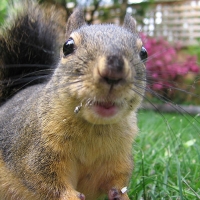
Well, Winky is hardly ready for quantum physics, but he is the smartest squirrel ever. He was also the first to survive the genetic resequencing. When it was clear he was thinking beyond normal squirrel thought processes, I initiated the appropriate genetic mutations to endow him with usable vocal cords. He’s like a slumber party of little girls—talking and giggling all the time. He has a broad fascination with hang gliding. Years of watching birds, combined with him reading about flying squirrels and watching Bullwinkle cartoons, had bred a strong desire for flight in him.
I’ve successfully altered several others. It has been a challenge to teach the animals to shut up when my wife visits the lab—something she does frequently now, bringing me tea. Despite her disapproval, I think she’s hoping to see any results—like a rubbernecker driving by an accident, horrified by dismembered corpses but incapable of not looking.
Bucephalus, once simply my pet English lop, has made it quite clear how much he’d like to leave the lab and have his way with every wild rabbit he can find. I’ve explained that his new intelligence means nothing to woodland predators, but he has something of an invincibility complex—an “It can’t happen to me” mindset. Perhaps he’s more human that I thought.
Tricky, my Maine coon cat, is a great conversationalist, although it’s like talking with a child. He has much to learn, but then he isn’t as amazed by his newfound sentience. Instead of working on thinking and learning, he still behaves too much like a cat: lounging around, sleeping a lot, chasing mice.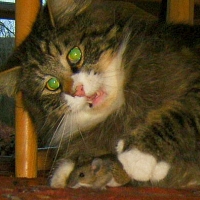
And the mice chasing is a problem. Oscar is the one mouse I made Tricky realize is absolutely off limits, considering Oscar has an I.Q. in the 160 range. If he keeps changing the way he has been, he’s liable to be the quantum physicist in the bunch. In the meantime, his head has expanded enormously to accommodate his increased brain mass. And he doesn’t forget his roots: He’s practically militant in his arguments with Tricky, seeing the cat’s slaughter of his mouse cousins as completely unnecessary. With these moral values, perhaps Oscar, most of all, is the greatest success so far.
Anyway, my wife comes to the lab about every other day, but never stays. She never says a word until I’m in the house at night. After dinner, she steers the conversation to my work. Usually we just discuss it and end with bitter feelings; occasionally she breaks down and cries.
I feel terrible when she does. I love her, but I must set her emotions aside, as much as it pains me, and finish this.
* * *
September 11
Sheila is insatiable nowadays, despite everything. She won’t leave me alone. I mean this in a sexual sense—she’s practically out of control. At every possible opportunity, she wants to make love. I’m running out of excuses. The truth is, I think she’s just trying to distract me from my work. Despite my feelings for her, I can’t allow that to happen.
Am I becoming a monster?
* * *
September 29
I thought I’d found a way to explain it to my wife in terms anyone could understand, but I’m beginning to suspect her religious beliefs are making her deliberately non-responsive to my logic. I think she may be afraid I’m making some sense.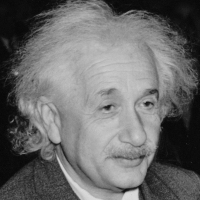
I explained it like this: Einstein had an incredible capacity for logic and reason. After his death, research on samples of his brain tissue showed that, in the part of his brain responsible for logic and reason, he had far more neurons than average. Einstein literally had more brains—more neurons in the same space. With genetic enhancements causing spontaneous growth of more neurons, anyone could become as logical and intellectual as Einstein. Such neural engineering could be done in any part of the brain—increasing memory capacity, speed of thought, computational ability, and acuteness of senses. I’ve shown that sentience and intelligence are inherently linked; that by engineering neural growth, a life form will become more intelligent and thus sentient.
Everything seems to be a runaway success, yet I’m worried. Even my own wife still refuses to understand. But no matter how insane this whole thing is becoming, at least Sheila still loves me. Is that good or bad? She’s still trying to seduce me, and I keep resisting. It’s just a ploy to divert my attention from my work.
* * *
October 4
My wife really lost her mind with me today. I think her dedication to me is failing. That would be disastrous. I never should have shared any of this with her.
She screamed for ten solid minutes that these unnatural creatures I’m creating are sent from Hell. She looked like a madwoman. If she’s resorting to blaming the devil for all of this, I worry that my time is running out—that she will finally crumble and turn me in. I begged her to calm down.
“Then stop these experiments, Charlie!” she cried.
“I can’t do that,” I said. “I’ve had amazing breakthroughs.”
“Stop these Satanic experiments or I’ll divorce you,” she said, and in that moment I could tell she meant it.
That’s why I can’t record any more right now. I need to do something. I need to get back in the house and comfort her. Somehow.
* * *
October 5
I made love with my wife last night, after holding and kissing her for what must have been hours. She cried on me and told me how much she loved me as I told her the same. The animals were annoyed when I came into the lab six hours late today, but they’ll get over it. I had to devote myself to my wife, to make love with her, to reassure her that I love her more than anything and that I’m not evil.
I had to devote myself to my wife, to make love with her, to reassure her that I love her more than anything and that I’m not evil.
But I also did something terrible: I lied to her. I looked her in her eyes and promised her the experiments were over. She didn’t believe me at first, even though she wanted to, but I convinced her. Of course, I had to explain why I would be in the lab every day, all day, as usual, but that part was easy. I told her the genetic procedure I had done on the animals could be undone, and it would take nearly as much work to revert them back to their pre-evolved states. And that was true. I’m just not going to do it.
But she believed it, and she was the happiest woman on Earth. She had her husband back, and she no longer felt guilty standing idly by while I created what she considered abominations. So I’m a liar and a terrible husband. But when this is all over, she’ll see why it was all so important. One day, she’ll understand.
* * *
November 19
Over six weeks since that last entry. I just listened to it and it seems almost amusing now. In those weeks, I have come to understand that I never lied to my wife at all. I told her I’d cease my experiments, but in truth, my work is no longer experimental: I have successfully genetically engineered intelligence and sentience in lower life forms. I have mastered controlling the behaviors of those animals. Unlike the first bunch—Winky, Oscar, and the others—there are no more aberrations. What I choose to do, I do—successfully, flawlessly, perfectly.
I’m not playing God—I truly am a god. I’m fighting against my own ego to remain scientific, but it’s difficult. By night, my wife is a new woman in the wake of my apparent surrender. If she knew the truth, she wouldn’t be snuggling up to me every night.
In the midst of my eighteen-hour days, full of intensity and nonstop work, I don’t have time for Sheila’s sex games, but she won’t leave me alone. I think it’s my glowing self-satisfaction that’s turning her on. I pretend I don’t notice; I can’t afford such physical distractions.
* * *
November 30
I don’t buy her religious arguments, but ironically I wish I’d listened to my wife and stopped my work. I console myself by imagining that if there is a God, maybe even He made a few mistakes when creating everything.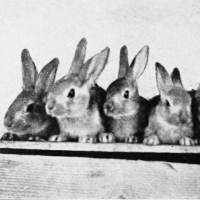
I regret everything now. In the past week, the situation has spiraled into an out-of-control, utter failure. Winky and the other early subjects are all right, but the later animals—the products of my perfected process—are disasters. Their intellects skyrocketed, and I was overrun with a group of animal Einsteins. You can imagine how long they agreed to remain caged.
They’ve escaped, and they’re sure to breed. The world will soon be overrun by hyper-intelligent animals. How will humans respond? I fear that, knowing human arrogance and the animals’ ambition, it must end in the destruction of them or us. It’s frightening to think of the potential consequences of my arrogant, selfish actions.
I dare not tell my wife, because I love her so and don’t want to lose her. I’m hoping she won’t tell anyone when they come around asking questions. But when sentient, talking animals start popping up everywhere, the authorities will investigate all scientists capable of such a genetic masterwork. I’m registered, of course. And I’m one of the best in the world.
What will I do?
What will the world do?
* * *
December 1
I have to tell my wife everything. I have to tell her how I lied to her and kept the experiments going. I have to tell her how they got out of control and the hyper-intelligent animals escaped.
But I just can’t handle Sheila anymore. She simply won’t take no for an answer, and I’m tired of making excuses. But I can’t have sex with her. I just can’t.
* * *
EPILOGUE
The interrogation room was silent. Simms looked at Sheila Prescott, eyes wide.
“My God... you were in love with him,” Simms said incredulously. “I thought your devotion was loyalty, but…”
“Man’s best friend?” she said with a smile as she thumped her tail against the chair. The tags on her collar jingled as she shook her head. “Maybe it started as that, but I truly loved him, Detective.”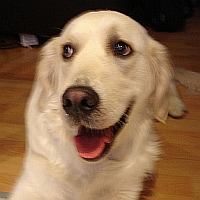
“He couldn’t return that love,” Simms said. “To him you were always going to be…” He trailed off, helplessly searching for the right words.
“A Golden Retriever,” she finished. “It’s okay to say it.”
He slumped in his seat. “I had no idea.”
Neither of them said anything for a long moment. Sheila put a paw on the table, her nails clacking. “So, how are they doing?”
“The Prescotts? Well, they’ll never be normal humans again. They behave like primates, but they seem content together.”
“They needed to be that way,” Sheila said. “You see, it wasn’t just that I’m a dog; he’d have gotten past that if it hadn’t been for her. He really loved her—so much that he couldn’t handle having hurt her so badly, violating everything she believed in.”
“So he initiated the genetic mutation on her, hoping she’d intellectually regress and maybe forget what he’d done,” Simms said. “But it went too far, and she devolved. That was the last entry in his notes, so we still don’t know why he then did it to himself.”
Sheila huffed a nasal, canine sigh and looked away.
Simms was about to repeat the question when he realized. His mouth sagged open and he was breathless. “You did it?”
“It would have been easier with an opposable thumb,” she said, “but I managed to inject him. I loved him, but I realized he’d never love me the way he loved Janet. I felt bad for him after she was devolved, because he’d been so sure it would solve everything. He considered re-evolving her, but she’d have been a different person. What I did was the only solution.”
“I can’t believe this,” Simms said.
“Do you know what his last words were when his brain began to change?” Sheila said, her tail wagging happily. “He knew what I had done, and he looked at me as he writhed on the floor, and he said, ‘Good girl… good girl…’”
Simms slid his chair back and stood. Wordlessly, he headed for the door and opened it. He stopped when Sheila spoke behind him.
“I notice you don’t wear a wedding band, Detective,” Sheila said. “I really can be a good girl, you know. I’m just like you humans.”
“You’re right, Sheila,” he said, turning to her. He felt dizzy. “You and all the other hyper-intelligent animals loose out there are exactly like us—capable of doing the kinds of things you did to Charlie Prescott.”
“But what I did was right,” she whined. “I’m beyond my animal roots now; I’m sentient and intelligent, and I have morals. This was the only merciful thing to do.”
“It’s the human way to commit horrible atrocities and justify them with perceived morality,” Simms said. “Congratulations on your evolution. You’ve achieved humanity perfectly, in all its horror.”
He left her there, and when he was halfway down the corridor, she began to howl.
David M. Fitzpatrick is a fiction writer in Maine, USA. His many short stories have appeared in print magazines and anthologies around the world. He writes for a newspaper, writes fiction, edits anthologies, and teaches creative writing. Visit him at www.fitz42.net/writer to learn more.
